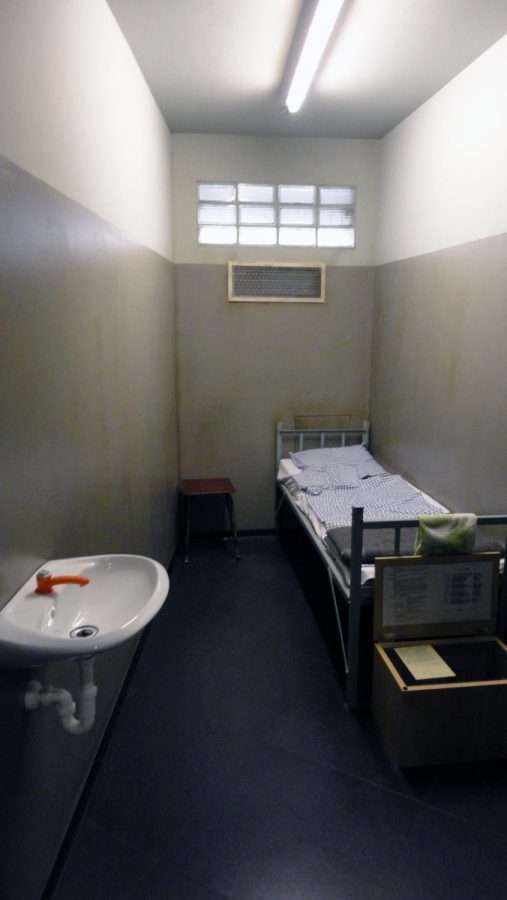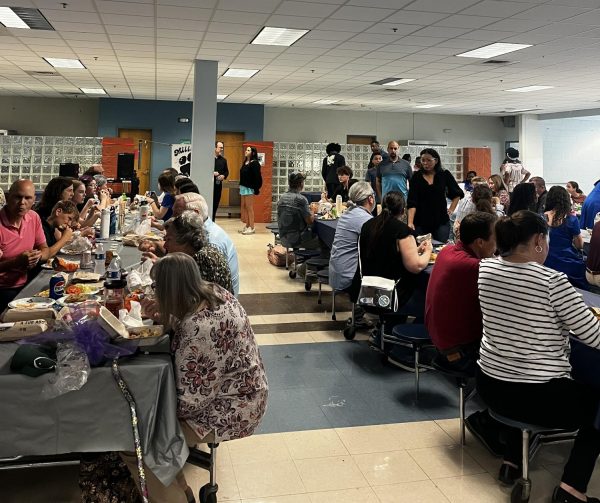Does the U.S. prison system actually work to rehabilitate inmates?
Revealing an ordinary jail cell that inmates must stay in for twenty-three hours a day when in solitary confinement, we get an idea of the small space available for prisoners. This is among one of the reasons prison abolitionists are calling for prisoner rights to be acknowledged.
January 10, 2019
The United States makes up five percent of the world’s population, yet we have twenty-five percent of the world’s prison population. Though crime rates have steadily diminished over the years, incarceration rates have risen by 500%. Prison abolitionists have had enough. The abolition movement is comprised of different groups working together to replace the prison system with a rehabilitation system that includes prisoner’s rights. A key abolitionist belief is prisons harm society by oppressing individuals through punishment, when restoration methods would be more useful. This movement gives people new perspectives on prisoners and challenges our traditional systems of incarceration.
A main argument is inmates of color and inmates in the LGBTQ community are sentenced harshly. Cyntoia Brown, now thirty, was given a life sentence at age sixteen for killing the man who solicited her for sex. She was recently granted clemency and will be released on August 7 of this year. Without clemency, Brown would not have the opportunity of parole until 2056. Many blame her harsh sentence on the fact that she is black and claim the justice system failed her. Sophomore Jessica Clark said, “Our justice system is pretty messed up, but the prison system treats inmates worse. A lot of prisons and its guards mistreat the prisoners and ruin their chances of getting out.”
Prisoners rarely positively reflect on their time while incarcerated, and there is some disagreement on whether or not this should be accepted. In early 2018, the United Kingdom High Court called U.S. prisons oppressive and a human rights violation. The American Civil Liberties Union, or the ACLU, voiced their support with their main premise: solitary confinement negatively affects prisoner’s mental health. Psychologists have regularly expressed that isolation damages those without pre-existing mental health issues and inmates with mental illnesses gain even worse side effects. When the Federal Bureau of Prisons faced criticism for their lack of treatment for prisoners with illnesses, they created a new program that guaranteed better treatment. Later that year, The Marshall Project collected data showing the Bureau instead reduced the amount of prisoners receiving treatment by thirty-five percent. Recently, the Bureau declared only three percent of prisoners require regular care for mental health, but when compared to individual state’s data, that is not true. Many states provide regular treatment for fifteen to thirty percent of inmates. Without proper care of prisoners, rehabilitation is impossible.
A change must happen in our prison system to enforce laws but also ensure prisoners have their rights. Sixty-eight percent of prisoners are prosecuted again within three years of their release, and seventy-seven percent are prosecuted again within five years of release. This shows that our current system is not working to change people for better; it just puts people away in an “Out of sight, out of mind” type of manner. A popular term among abolitionists “Stop/Shrink/Build,” meaning stop incarceration, shrink the amount of prisons in use, and build up the awareness of the problem with the prison system. If more time and money is spent on finding out why people commit crimes, then we could find new ways to prevent crime. Similarly, we can normalize mental health institutions and provide affordable mental health treatment. “Transformative Justice” is another popular term for abolitionists. It is an approach that spreads knowledge in communities on violent crimes like sexual assault. It also teaches communities how to prevent crimes and ways to give victims support. This is typically done through non-profit organizations. Using these tactics, and others currently in development, we can all work together to reduce the stigma associated with prisoners.












